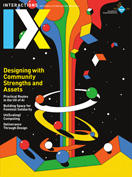Authors:
Ira Anjali Anwar, Zothan Mawii
Over the past decade, critical inquiries into digital labor platforms have become prolific across disciplines. However, in CSCW and HCI spaces, research has focused on Western labor markets and largely ignored "feminized" vocations, focusing instead on male-dominated platforms such as ride-sharing or crowdwork. As much as there are shared concerns and themes across geographies, historical and local realities shape the lived experiences of platform workers in the Global South. In this discussion, we draw on our research experiences across South Africa, Myanmar, and India to focus on how, against the backdrop of informality, the proliferation of digital labor platforms in highly feminized corners of the service industry—specifically domestic and beauty work—is shaping working conditions for women and migrant workers.
→ Digital labor platforms proliferating in postcolonial contexts often step into disorganized and informal labor markets, such as highly feminized service industries like domestic and beauty work.
→ Yet platforms changing the labor process often leave workers more isolated, with fewer safety nets.
→ Community networks are crucial for workers but digital interventions do not always support their formation or sustenance.
Ira Anjali Anwar: Based on your research, how do you think digital platforms are reconfiguring the world of work and existing social dynamics, particularly for women and migrant workers in the Global South?
Zothan Mawii: We studied a domestic service platform in South Africa and spoke to women on the platform, as well as those who worked off the platform and were members of the domestic workers unions [1]. What became clear was that platforms and the nature of gig work have a considerable impact on the women's experience of work, but also on how solidarities are formed. Platforms are attempting to fill gaps and failures in public institutions and infrastructure, and are operating in labor markets that are marked by high levels of informality and inequality.
Domestic work is a messy sector; it's always been informal, performed by women from marginalized communities, with few legislative protections, and therefore is highly exploitative. In a country as racially segregated as South Africa, it was mostly Black women from poorer backgrounds working for white households. We did the fieldwork in Cape Town, where, even geographically, the separation between workers and the customers was stark. Many of the workers were from Zimbabwe and Zambia and had immigrated to South Africa for better work opportunities. And even though some were highly educated with advanced degrees, platforms were one of the only ways they could find work because they faced discrimination as migrant workers.
We saw just how segregated and atomized the platform-based domestic work is—workers were going to four or five different households a week and rarely matched to the same customer twice, making for a highly isolated and alienated working environment. Compare that with the experiences of women who work off-platform—they'd been working as domestic workers for years, sometimes working 10 to 15 years with one family. One of the things that became very apparent was how the people who worked off the platform were able to rely on their employers for their regular salary and other informal forms of support, a Christmas bonus, or help with bills and small loans in times of illnesses or hardships. As imperfect as this informal support from employers can be, it made a pretty big difference. But platform workers are left with almost no support from the platforms, the state, or these informal safety nets.
IAA: It seems with platform work, there's a sterilization of relationships between the customer and the worker, and between workers themselves, because that sense of familiarity—of working together every day or going to the same customer regularly—is gone.
That's prevalent in the context of Indian beauty gig workers too. Based on our ongoing research, we find that this erosion of informal support systems has become very stark with the pandemic. Most of the women we spoke to four to five months into the pandemic mentioned that even though home service platforms promised them financial, health, and employment support, they faced a lot of difficulty in navigating the digital and bureaucratic processes to access these things; instead, they ended up seeking help from their family and friends. Everything's become virtual, even previously in-person training sessions where beauticians would meet their trainers and colleagues at the company office to learn and sort things out together. Now that all the offices are closed, the platforms' trainers and managers are overworked and quite unresponsive over the phone, so the little sense of community and support that workers had has further unraveled.
In many ways, women on these platforms feel like this complete shift to digital spaces isolates them and makes them more vulnerable. Beyond a solely utilitarian view of these friendships, there's also a feeling that the solidarity you spoke of, which is so meaningful, has been lost. Even before the pandemic, one of the beauticians we spoke with noted that, while she appreciated the overall improvements in working conditions with the shift to platform work, she really missed working in the salon because she had friends to share tea breaks and gossip sessions with. Now she just goes to the customer's home, performs the service, and goes back to her own home. Outside of work, she doesn't go out because she has to attend to housework and the general demands of domesticity that are placed on women.
This kind of isolation is true for gig workers across sectors and jobs, but I think for women workers in a lot of the Global South contexts, their reliance on informal support networks and building friendships through shared workspaces and work situations is a lot more pivotal, because often that's their main or only access to the outside world. On the flip side, a lot of the women also emphasized how platform work gave them mobility and freedom from familial control, in effect expanding the outside world itself [2]. I think the interesting question here is, why does this become a trade-off for women, between solidarity and freedom?
ZM: For the women who were working in salons before, were platforms offering better terms to convince them to shift? Is that why the platformization of beauty work is picking up pace?
IAA: Yes, it's mainly the earnings and the flexible scheduling. All the women we spoke to said that they were very badly paid in salons, and most of them were engaged in informal jobs, so there were no employment benefits either. Given their acute dependency on their jobs [3], migrant workers, coming predominantly from the northeastern states to Bangalore to work in the beauty industry, and a few from neighboring states like Tamil Nadu, experienced terrible working conditions [4]. They made about 2,000–3,000 rupees ($25–$40) a month at the salon, and they had to do everything from cleaning up to working as a beautician.
The salon owners would say, "This is your learning process. We're investing in your training, so we can't pay you a decent salary." Even the bigger salons, which technically functioned as formal establishments, hired beauticians on informal employment terms. Very few of the beauticians had ever had access to social security or benefits like health insurance through employment. If lucky, beauticians with 10 to 20 years' experience in the bigger salons could earn up to 25,000 rupees ($340) a month. So, with the shift to platform work, many beauty gig workers we spoke to noted that their earnings increased, especially with the platform offering tempting incentives. For a while this gave the women a sense that they could realistically aspire to a better lifestyle, that there was somewhere "up" for them to go.
There's a sterilization of relationships between the customer and the worker, and between workers themselves.
Of course, this kind of predatory behavior is common across different gig platforms. Gig worker's earnings start to diminish over time—the platform reduces prices for services, and very often entirely takes away incentives once workers are firmly embedded in the platform. During festival season, and even "post" the pandemic, a lot of the beauty workers have noticed that prices for services have fallen without any notice, depressing their earnings. Pricing mechanisms are very unpredictable and gig workers don't have any say in these processes.
In terms of flexibility, it was important for most of the women to manage their domestic and care responsibilities along with their paid work, something that was hard to do when they worked 10- to 12-hour shifts at the salon. So the apps are appealing for these reasons. But it's important to emphasize that this flexibility doesn't ease the gendered burdens of domesticity; it just helps women manage it better. What's poignant is that, despite the kind of precarity that is very prevalent in the platform economy, platform work is often the most stable employment relationship that women service workers in southern economies have experienced.
ZM: In South Africa, some of the domestic workers we interviewed mentioned a competing app that allowed customers to hire workers on either a weekly or monthly basis. Those who used both platforms said they preferred this app because of the security it gave them. Knowing that they had a guaranteed job for at least a few days that month and they would get paid for it helped them plan their finances and schedule other work. It gave them a sense of security and really improved their experience. Funnily enough, that competing app is defunct now. So, there's something to be said about how the business model of platforms doesn't necessarily reward good working conditions.
IAA: That is so interesting. The business model is tied into the very design of platforms, and the overall platform ecology encourages monopolistic tendencies. And yeah, knowing there's regularity in work and earnings is so important, especially when you don't have savings or financial support. With the pandemic, the precarity was really heightened, because now that the number of customers has drastically reduced, all the workers are struggling. The few beauty workers who were able to sustain some regularly paid work got them through their informal networks, and a few had managed to establish a working relationship with clients outside of the platform. Given the intimate nature of the beauty work, this sense of familiarity and trust has become very critical.
ZM: Yeah, the importance of supportive communities and informal networks became really apparent during the pandemic, because publicly, the platforms were promising healthcare, paid medical leave, and financial assistance with sick family members, but in reality, this promised support wasn't reaching workers. When we asked ride-share drivers and delivery workers, most of them said they didn't know how they could access the schemes the platforms promised. They had to rely on friends, family, and other support networks as their safety nets.
IAA: Can you speak a little more about this difficulty that workers face in trying to access relevant information for them in the platform?
ZM: I think this was one of the starkest expressions of the information asymmetry that digital labor platforms perpetuate. It's well documented that platforms often rely on concealing information to control workers. We contacted the platforms and asked them to share the process for workers to access the schemes. There was this real reluctance to share information and most deflected, saying they couldn't share that information at that time.
Technology can still be used to fill this gap, though. For instance, there is a worker voice platform in Myanmar called Golden Dreams that helps potential migrant workers find verified information to migrate safely to neighboring countries for work [5]. Migrant workers crossing international borders are at high risk of human trafficking and inhumane working conditions. The Issara Institute, an NGO, created Golden Dreams, which is essentially a database of verified employers, recruitment agencies, and agents. It also has information about hospitals and schools in the countries that workers are migrating to. Workers can rate employers and recruitment agencies on the platform for others to see. They also have a hotline, where workers can call if they face problems before or after leaving Myanmar.
The overall platform ecology encourages monopolistic tendencies.
The NGO collaborated with local grassroots organizations to teach people how to use the platform since Internet penetration and digital literacy are quite low in Myanmar. The NGOs would hold information camps in villages, and if workers themselves couldn't attend these demonstrations, a family member would attend and report back. It shows how crucial on-the-ground organizing and community relationships continue to be even when techno-solutionism abounds.
IAA: It's so interesting that for this digital platform to actually succeed, it is dependent on existing, on-the-ground community networks. Without that kind of support system, a technology platform on its own is not going to do much for the majority of the labor force. And I think this is something that women in particular really rely on. Yet the overarching narrative often becomes how purely technological solutions address structural and developmental problems in Global South contexts.
I want to ask—in the South African context, you mentioned that a lot of the women who were part of the traditional employment relationships there were engaged with unions. Are there efforts to encourage domestic gig workers to engage with unions?
ZM: None of the women who worked on the platform were members of the union. We asked if they might want to join a union, but they didn't think or didn't know how a union would be helpful to them. The unions, on the other hand, were eager to add new members but had difficulty recruiting workers who relied on platforms to find work. It's difficult to organize domestic workers because they work in private households and there is no common physical gathering space. Platform work alienates workers even further. The migrant workers were hesitant because they anticipated some hostility as "foreigners." It seemed to me that, from the union's side, there's a real heartbreak around their decline, because South Africa has a very long and storied history of trade unions, which were critical in the fight to end apartheid.
IAA: Because you've also had diverse experience in different Global South contexts, do you have any reflections on doing this kind of research in such contexts?
ZM: There are significant challenges—both ethical and methodological—to researching platforms and workers. Algorithmic management systems that underpin these platforms are extremely sensitive and efficient at controlling and penalizing workers. We need to think about better ways to engage with workers so their participation in the research doesn't adversely affect them. I've been thinking a lot about how we can do more empathetic research. One way would be to think about reducing the power imbalances between worker and researcher and to find ways to do research on less extractive terms. It's important as researchers to be more accountable and cognizant of workers' needs.
The second is around longevity and impact. Something that hasn't been done that we should be doing is longitudinal research to see if and how our research has had impact, how workers' experiences have changed over the years, and how changes in platform policies and legislative action have contributed to these changes. This could help us strategize for broader improvements in working conditions and worker rights.
IAA: The point about longevity is so pertinent. We went in and spoke to women beauty workers in Bangalore two months before the pandemic hit, and then again four months into the pandemic. Their experiences were so vastly different—of course because of the pandemic, but also because of how rapidly the platform ecosystem keeps changing. That's also why with gig economy research there is this need for participatory frameworks that are historically, contextually, and theoretically grounded. I'm sometimes a bit weary of "solution"-oriented research, especially in developmental contexts, because it often gets dangerously close to techno-solutionism. But I think participatory frameworks will be critical to counter information asymmetries between the platform, researchers, and workers.
There's an overall lack of historicity and geographic cognizance—something that's coming up as a critical shortcoming of HCI research in general [6]—that contributes to reduced accountability. The gig landscape is so fresh and evolving, it's easy to forget that these kinds of working arrangements aren't novel in southern contexts. Because this research has been so focused on Western contexts, it often ignores the legacy of informality in the Global South, and the ways in which platforms reproduce those dynamics. If you don't take this context into account, it becomes tempting to say that platform work addresses issues of precarity for Global South workers, that in some ways work gets "formalized" [7] and working conditions may also improve to a limited extent, particularly for women workers. But these slight, often temporary improvements in working conditions shouldn't be seen as a good-enough consolation prize for marginalized geographies but rather as a sign of the extreme, historical disenfranchisement of the Global South workforce. The current platform labor model reproduces older forms of precarious work arrangements like piece rate work, and to be able to discern that logic we must pay attention to both history and geography.
1. Tandem Research and The Cloudburst Group. Gig work on digital platforms: Platform-based domestic work – Sweepsouth. USAID; https://www.tandemresearch.org/assets/SweepSouth-Case-Study-Final-2020-05-15.pdf
2. Anwar, I.A., Pal, J., and Hui, J. Watched, but moving: Platformization of beauty work and its gendered mechanisms of control. Proc. ACM Hum.-Comput. Interact. 4, CSCW3 (Dec. 2020), Article 250; https://doi.org/10.1145/3432949
3. Most migrant workers work to support families back home, on top of their own living expenses. Some salons even provide lodging and food, making the women entirely dependent on them.
4. The northeastern states are geographically and culturally removed from the rest of India and the population is predominantly made up of Scheduled Tribes and Scheduled Castes, which are protected classes under the Constitution of India. Service workers from northeastern states often face extensive and gendered forms of racial stereotyping and discrimination in mainland India, further exacerbated by language barriers. Interstate dynamics also shape discriminatory behaviors against migrant workers, for example, disputes between Tamil Nadu and Karnataka have created long-lasting tensions between migrant workers and "native" dwellers.
5. Tandem Research and the Cloudburst Group. Gig work on digital platforms: Information-sharing platforms – Golden Dreams. USAID; https://tandemresearch.org/assets/Golden-Dreams-Final-2020-05-15.pdf
6. Soden, R., Ribes, D., Avle, S., and Sutherland, W. Time for historicism in CSCW: An invitation. Proc. ACM Hum.-Comput. Interact. 5, CSCW2 (Oct. 2021), Article 459; https://doi.org/10.1145/3479603
7. But only insofar as industry and the state now has formal data on the workforce, not in terms of employment benefits.
Ira Anjali Anwar is a Ph.D. student at the School of Information, University of Michigan. Her research focuses on the gendered and infrastructural dimensions of gig work and labor rights in postcolonial contexts. She is interested in the politics of technology for development and entrepreneurial citizenship. [email protected]
Zothan Mawii is a Ph.D. student at the College of Information Studies, University of Maryland. Her research focuses on sociotechnical systems, labor, and social reproduction in the Global South. [email protected]
©2022 ACM 1072-5520/22/11 $15.00
Permission to make digital or hard copies of all or part of this work for personal or classroom use is granted without fee provided that copies are not made or distributed for profit or commercial advantage and that copies bear this notice and the full citation on the first page. To copy otherwise, to republish, to post on servers or to redistribute to lists, requires prior specific permission and/or a fee.
The Digital Library is published by the Association for Computing Machinery. Copyright © 2022 ACM, Inc.








Post Comment
No Comments Found